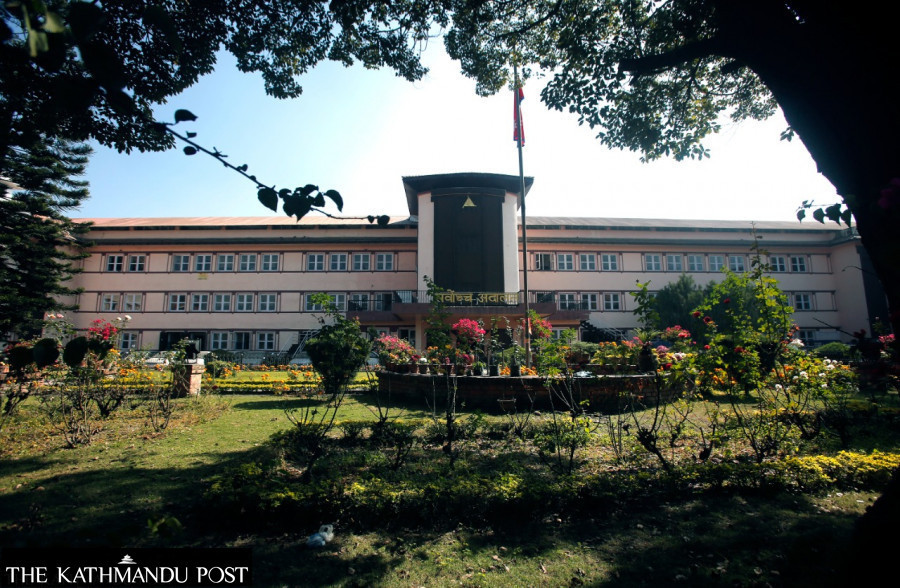National
Country sure to be without chief justice for a while
Another acting chief justice to head court after August 5.
Binod Ghimire
Even as Chief Justice Hari Krishna Karki is to take mandatory retirement in a month, there is no preparation to nominate his successor.
The Constitution of Nepal requires the Constitutional Council to nominate a chief justice candidate a month before the position becomes vacant. Karki reaches the mandatory retirement age of 65 on August 5. As per Article 284 of the constitution, the council must have nominated his successor by Wednesday.
However, Prime Minister Pushpa Kamal Dahal, who heads the council, hasn’t called its meeting. “The council’s meeting hasn’t been called yet,” Ramesh Malla, chief personal secretary to Dahal, told the Post. “I have no information when it will be called.”
Speaker and deputy speaker of the House of Representatives, the chief justice, the chairperson of the National Assembly and the leader of the main opposition are the council members. Minister for law, justice and parliamentary affairs replaces the chief justice when the meeting is for nominating a chief justice candidate.
Members of the council should get a 48-hour advance notice on the scheduled meetings. As no notice has been given to the members by Wednesday, it is not possible to hold a council meeting on Thursday. And Deputy Speaker Indira Rana is travelling to China on Thursday midnight. She will return only on July 10.
“I haven’t got any information on the council meeting,” Rana told the Post. “Hopefully it will be held after my return.” As the prime minister must wait until Rana comes back from her foreign trip, it will not be possible to nominate a new chief justice for at least a week.
Constitutional experts say the prime minister has flouted the constitution by delaying the nomination process. “It seems the political leadership doesn’t want full-fledged leadership in the judiciary,” senior advocate Dinesh Tripathi, who chairs the Constitutional Lawyers’ Forum, told the Post. “Delay in making the nomination means the judiciary will be led by acting chief justice for some time.”
If the council doesn’t break the hierarchy, Bishowambhar Prasad Shrestha, the senior-most justice at the Supreme Court, will be picked as its head. The nominee for chief justice must go through parliamentary hearing before being appointed by the President.
The Parliamentary Hearing Committee, after receiving the council’s nomination, makes a public call for complaints against the candidate. The nominee is quizzed after holding discussions with the complainants. The entire process takes at least a month if things go smoothly.
Incumbent Chief Justice Karki led the judiciary as its acting chief for months as the Dahal-led council delayed his recommendation. Karki was appointed acting chief justice on October 5 last year. The Supreme Court was headless after Cholendra Shumsher Rana faced an impeachment motion in the second week of February last year until June 16.
Rana retired as chief justice on December 13, without the Parliament deciding on the motion. Seniormost justice Deepak Kumar Karki then led the judiciary as acting chief justice for seven months. Hari Krishna Karki succeeded him in September last year. It took eight months for the council to nominate him for chief justice and he was appointed on June 16, just six weeks before his retirement.
Tripathi says the acting chief justice will hesitate to rule against the government and the parties in the fear that he or she could be rejected in the parliamentary hearing. “This is what the incumbent government and parties want,” he told the Post.
Shrestha will have more than a year to lead the judiciary as he retires on age-ground on October 5 next year. He will be succeeded by Justice Prakash Man Singh.




 13.12°C Kathmandu
13.12°C Kathmandu














